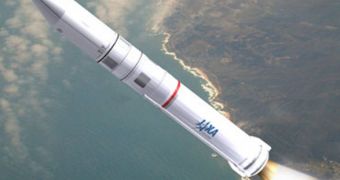Equipping delivery systems with artificial intelligence may be one of the best possible methods of reducing the launch costs currently keeping this industry in check. Eliminating this hurdle could lead to a boost in space activities, with all the advantages this entails.
According to specialists, using AI on rockets could also make the launch process smoother than it is today, therefore helping to protect sensitive scientific instruments and experiments launched on orbit.
But some say that the term AI is very loose, and refers to a wide variety of systems. On rockets, proponents say, artificial intelligence would translate into allowing the vehicle the capability to perform a wide variety of tasks currently performed at Mission Control.
These may include greater automation capability, as well as the necessary access level to perform checkups both before and after the launch has occurred. It may even be possible to allow AI on a rocket to take control of some guidance and operations processes during flight.
This proposal comes from the Japan Aerospace Exploration Agency (JAXA) Institute of Space and Astronautical Science (ISAS). Professor Yasuhiro Morita explains that “so far, rockets are merely automatic. They are not artificially intelligent.”
Over the next few years, the country plans to move ahead with the development of the Epsilon launch vehicle, which will first of all constitute a testbed for AI technologies in orbit, Space reports.
Morita, who is the Epsilon project manager, estimates that the first prototype of the new rocket class could launch on its maiden voyage as early as 2013. At least, he says, this was the plan before the March 11 earthquake and tsunamis that struck Japan.
According to the project manager, the type of AI that JAXA wants to put on Epsilon will be able to conduct diagnostics of the rocket, but it will also be capable of determining the causes of malfunctions, if and where they occur.
Rather than having all data from sensors routed to Mission Control – as is currently the norm – Epsilon will feature a central computer that will centralize and analyze these information beforehand.
Based on the results of these analyses, the rocket's “brain” will then determine what needs to be done in case of an emergency. If no malfunction is detected, then the vehicle will continue flying on its designated path until it fulfills its mission.
One area where AI would come in very handy is direction control. The system could manage thruster nozzles, whose orientation determine where the rocket is going. Malfunctions affecting the nozzles are oftentimes the reason why delivery systems veer off-course.

 14 DAY TRIAL //
14 DAY TRIAL //